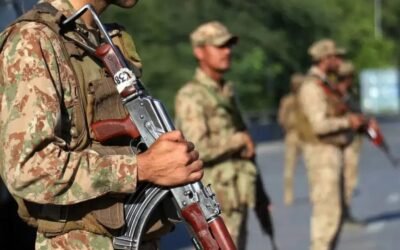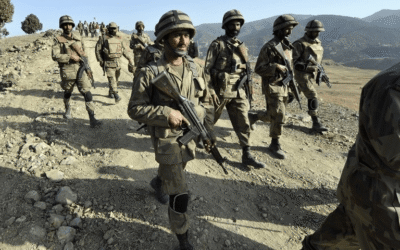Polio is a crippling childhood disease that can cause permanent paralysis and even death, but it is preventable through vaccination. While most of the world has eradicated polio, Pakistan remains one of the last countries still struggling to wipe it out. Militancy, misinformation, and mistrust have turned a simple health campaign into a dangerous battle. Extremist groups, clerics, and even local communities have spread propaganda and attacked vaccination teams, making eradication much harder. The so-called “Polio Jihad” is not just against a virus — it is also a war against Pakistan’s health system and national development.
FAK Propaganda Against Polio
In the Pakistan–Afghanistan border areas, many extremist groups and local clerics spread false stories about polio drops. Some religious leaders told people that the vaccine had pork and alcohol in it, which Islam does not allow. Because of this, many parents became scared and refused to let their children take the drops. Other clerics spread bigger conspiracy theories, saying the vaccine was a Western plan to make Muslim children sterile so the Muslim population would shrink. These fiery speeches in mosques and villages created strong doubts about polio campaigns.

The problem grew worse after 2011, when it came out that the CIA had used a fake hepatitis B vaccination drive in Abbottabad while searching for Osama bin Laden. Health workers collected DNA samples to find his family. Once this news spread, the Taliban and other militants used it as proof for their claims that vaccination programs were not about health but about spying on Muslims. Because of these rumors and fears, health workers became targets, and parents became more suspicious. This propaganda turned a simple health campaign into a battleground, making it much harder for Pakistan to wipe out polio and protect its children.
Target Killing of Polio Workers
Polio workers and the police who guard them have been the main targets of militant attacks in Pakistan. On 8 January 2024, a bomb blast in northwestern Pakistan killed five police officers who were protecting a vaccination team. Less than a year later, on 3 February 2025, gunmen shot dead another police constable in Jamrud town, Khyber Pakhtunkhwa. According to local police officer Zarmat Khan, two men on motorcycles opened fire on him while he was on duty.
Almost 70% of polio workers in Pakistan are women. They are chosen because women are more likely to be allowed into homes, and the job also provides poor and less-educated women a rare chance to earn an income. This has made female workers both valuable and vulnerable. In 2012, five women were murdered in just 20 minutes in Karachi and Peshawar, including Madeeha and Fehmida. The next day, another four were killed.

That same year, Pakistan reported 58 polio cases. By 2014, the number jumped to 307, showing how attacks directly harmed the campaign. Violence has only grown worse: in 2024 alone, more than 1,600 people were killed across Pakistan, the deadliest year in almost a decade.
Obstacle in Health Infrastructure
Pakistan still struggles to become polio-free because many children remain unvaccinated. In 2024, around 60% of children who got polio had never received even one dose of the oral vaccine. The situation worsened with 67 new cases, compared to only six in 2023. The Independent Monitoring Board reported that over four million vaccinations were missed in 2024, showing how fragile the system remains. Data problems in high-risk areas like Khyber Pakhtunkhwa and Balochistan also weaken the fight.
The government launched several nationwide drives to vaccinate more than 45 million children. Prime Minister Shehbaz Sharif even backed the National Emergency Action Plan for 2024–2025 to improve outreach and coordination. Yet hostility towards polio workers has not come only from militants. In Sindh, over 43,000 families refused vaccines in just one month, with some turning violent. These barriers show how deep mistrust and insecurity cripple Pakistan’s health infrastructure
Conclusion
The government of Pakistan, with international support, continues to push for a polio-free country. The National Emergency Operations Center recently launched a campaign across 99 districts to vaccinate over 28 million children. In just two days, more than 10.6 million children were reached — about 37% of the target. Progress varies by region, from 23% in Punjab to 65% in Azad Kashmir. Despite militant attacks, vaccine refusals, and even recent floods, Pakistan has shown resilience. Challenges remain, but steady progress proves that with stronger coordination and trust-building, polio eradication is still within reach.
You May Like To Read:
- Strategic Depth Turned Into Strategic Threat: How Pakistan’s Regional Policies Are Being Exploited by India in Balochistan
- The ‘Soft Power’ of Destabilization: How Indian Media, and Cultural Outlets Incite Discontent in Balochistan
- The Anti-Polio Jihad: Exposing FAK’s Deliberate Campaign Against Public Health Initiatives




























